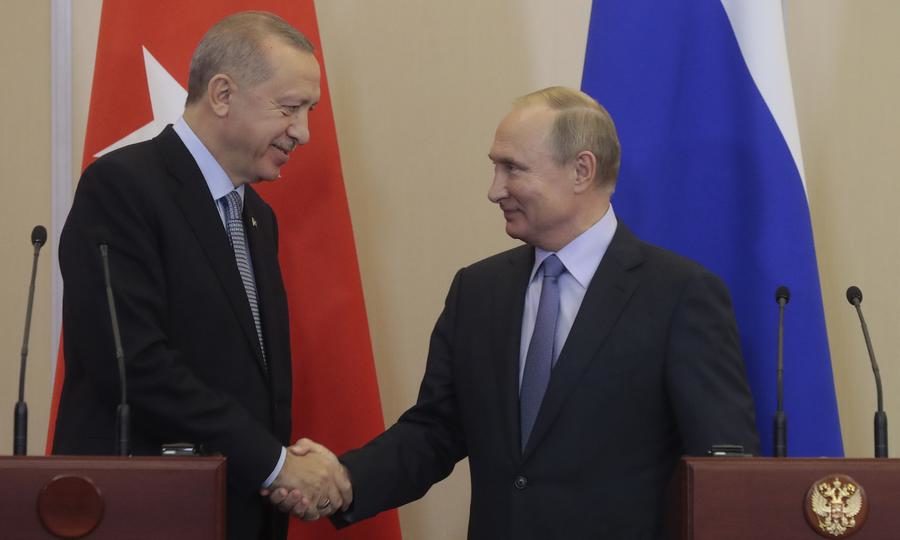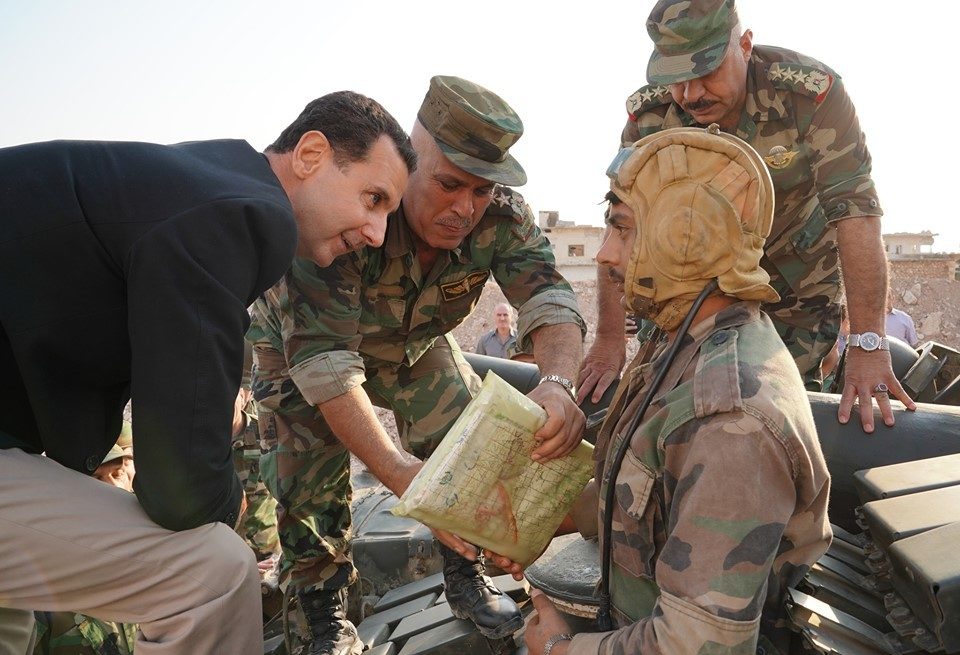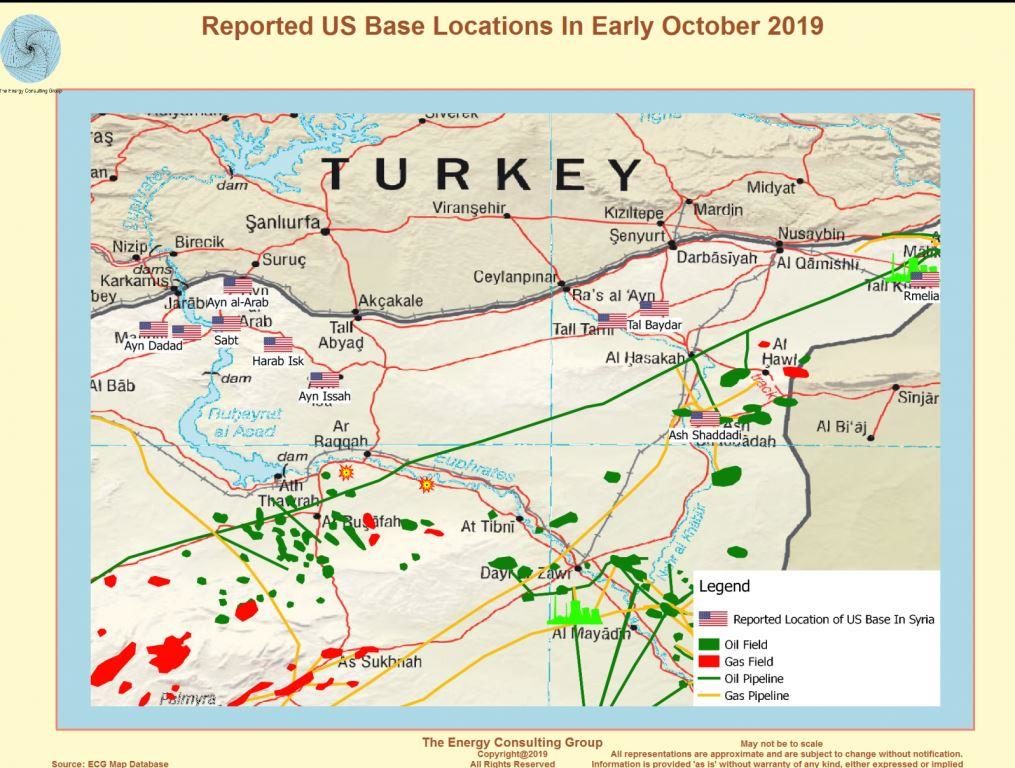Forhandlingerne i Sochi var lange - over seks timer - spændte og hårde. To ledere i et lokale med deres oversættere og adskillige tyrkiske ministre nærved, hvis rådgivning var påkrævet. Det der var på spil var stort: en plan til omsider at pacificere det nordøstlige Syrien.
Pressekonference bagefter var lidt akavet - det begrænsede sig til almindeligheder. Men der er ingen tvivl om, at den russiske præsident Vladimir Putin og hans tyrkiske modpart Recep Tayyip Erdogan klarede det næsten umulige.
Den russisk-tyrkiske aftale etablerer en sikkehedszone langs den syrisk-tyrkiske grænse, noget Erdogan har kæmpet for siden 2014. Der vil være en fælles Russisk-Tyrkiske militærpatruljer. Den kyrdiske YPG (People's Protection Unit), del af de ommærkede, US-allierede Syrian Democratic Forces, vil blive nødt til at trække sig tilbage og endog opløse sig, specielt på strækningen mellem Tal Abyad og Ras al-Ayn, og de vil blive nødt til at opgive deres meget værdsatte byområder så som Kobani og Manbij. Den syriske hær vil komme tilbage i hele det nordvestlige område . Og Syriens territoriale integritet - bydende nødvendigt for Putin - vil blive opretholdt.
This is a Syria-Russia-Turkey win-win-win - and, inevitably, the end of a separatist-controlled Syrian Kurdistan. Significantly, Erdogan's spokesman Fahrettin Altun stressed Syria's "territorial integrity" and "political unity." That kind of rhetoric from Ankara was unheard of until quite recently.
Putin immediately called Syrian President Bashar al Assad to detail the key points of the memorandum of understanding. Kremlin spokesman Dmitry Peskov once again stressed Putin's main goal - Syrian territorial integrity - and the very hard work ahead to form a Syrian Constitutional Committee for the legal path towards a still-elusive political settlement.
Russian military police and Syrian border guards are already arriving to monitor the imperative YPG withdrawal - all the way to a depth of 30 kilometers from the Turkish border. The joint military patrols are tentatively scheduled to start next Tuesday.
On the same day this was happening in Sochi, Assad was visiting the frontline in Idlib - a de facto war zone that the Syrian army, allied with Russian air power, will eventually clear of jihadi militias, many supported by Turkey until literally yesterday. That graphically illustrates how Damascus, slowly but surely, is recovering sovereign territory after eight and a half years of war.
Who gets the oil?
For all the cliffhangers in Sochi, there was not a peep about an absolutely key element: who's in control of Syria's oilfields, especially after President Trump's now-notorious tweet stating, "the US has secured the oil." No one knows which oil. If he meant Syrian oil, that would be against international law. Not to mention Washington has no mandate - from the UN or anyone else - to occupy Syrian territory.
The Arab street is inundated with videos of the not exactly glorious exit by US troops, leaving Syria pelted by rocks and rotten tomatoes all the way to Iraqi Kurdistan, where they were greeted by a stark reminder. "All US forces that withdrew from Syria received approval to enter the Kurdistan region [only] so that they may be transported outside Iraq. There is no permission granted for these forces to stay inside Iraq," the Iraqi military headquarters in Baghdad said.
The Pentagon said a "residual force" may remain in the Middle Euphrates river valley, side by side with Syrian Democratic Forces militias, near a few oilfields, to make sure the oil does not fall "into the hands of ISIS/Daesh or others." "Others" actually means the legitimate owner, Damascus. There's no way the Syrian army will accept that, as it's now fully engaged in a national drive to recover the country's sources of food, agriculture and energy. Syria's northern provinces have a wealth of water, hydropower dams, oil, gas and food.
As it stands, the US retreat is partial at best, also considering that a small garrison remains behind at al-Tanf, on the border with Jordan. Strategically, that does not make sense, because the al-Qaem border between Iran and Iraq is now open and thriving.
Comment: Given that US forces are using refugee camps there as terrorist/militia-recruitment centers, it still retains purpose for deep staters.
Nothin' to see here! Pentagon confirms training 'Maghawir al-Thawra moderate militants' near al-Tanf refugee 'camp'
Map: Energy Consulting Group
The map above shows the position of US bases in early October, but that's changing fast. The Syrian Army is already working to recover oilfields around Raqqa, but the strategic US base of Ash Shaddadi still seems to be in place. Until quite recently US troops were in control of Syria's largest oilfield, al-Omar, in the northeast.
There have been accusations by Russian sources that mercenaries recruited by private US military companies trained jihadi militias such as the Maghawir al-Thawra ("Army of Free Tribes") to sabotage Syrian oil and gas infrastructure and/or sell Syrian oil and gas to bribe tribal leaders and finance jihadi operations. The Pentagon denies it.
Gas pipeline
As I have argued for years, Syria to a large extent has been a key 'Pipelineistan' war - not only in terms of pipelines inside Syria, and the US preventing Damascus from commercializing its own natural resources, but most of all around the fate of the Iran-Iraq-Syria gas pipeline which was agreed in a memorandum of understanding signed in 2012.
This pipeline has, over the years, always been a red line, not only for Washington but also for Doha, Riyadh and Ankara.
The situation should dramatically change when the $200 billion-worth of reconstruction in Syria finally takes off after a comprehensive peace deal is in place. It will be fascinating to watch the European Union - after NATO plotted for an "Assad must go" regime change operation for years - wooing Tehran, Baghdad and Damascus with financial offers for their gas.
NATO explicitly supported the Turkish offensive "Operation Peace Spring." And we haven't even seen the ultimate geoeconomic irony yet: NATO member, Turkey, purged of its neo-Ottoman dreams, merrily embracing the Gazprom-supported Iran-Iraq-Syria 'Pipelineistan' road map.






Kommentar: As we suspected, the Turkish 'invasion' of northeastern Syria last month was more like an incursion done with a view to stimulating Syrian-Kurdish cooperation, presenting Trump with a problem if American troops got caught in the crossfire.
Trump probably saw through the ruse, but to his credit he played along with it and spun US troops' withdrawal from the border region into a 'win' in terms of his electoral promise to 'end endless wars'.
Trump can claim all the credit if he wants, but everyone knows there's only one peacemaker...